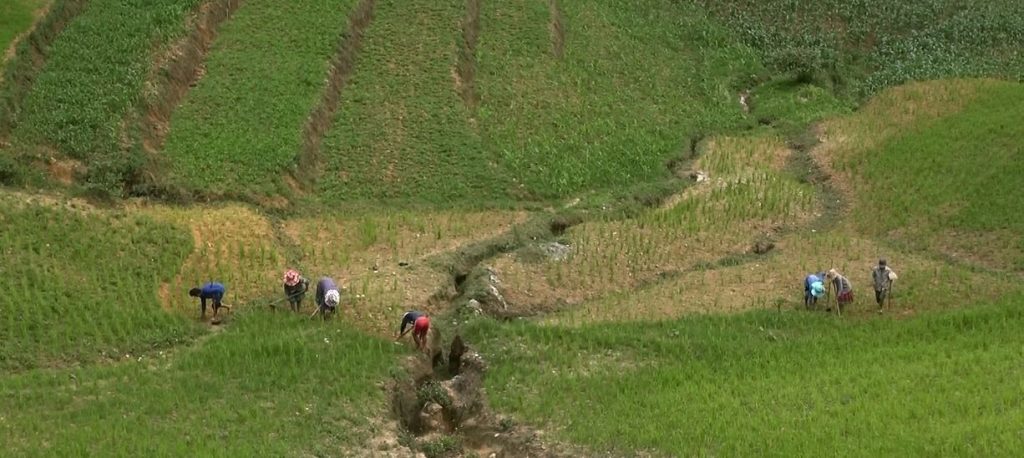
Viet Nam is extremely vulnerable to climate change impacts given its extensive coastline and river deltas, and highlands that have poor water retention capacity and are susceptible to severe erosion. Climate change is likely to affect agriculture in the following ways:
- productivity- crops grown and quantity and quality of crops will be affected
- agricultural practices- changes in water use (irrigation, availability, etc.) and the use of herbicides, insecticides and fertilizers will likely increase without intervention
- environmental effects- including soil erosion and reduction of crop diversity, which is already a major problem.
- land ownership- environmental challenges and changes in the types of crops that are grown will likely cause small farmers to turn to contract farming or sell their land
- adaptation- responses to climate change could cause organisms to become either more or less competitive, and GMO organisms may be developed in order to combat the results of climate change (i.e. flood/drought/salt resistant varieties of rice).
Reducing environmental degradation and improving resilience to climate change can have mutually reinforcing benefits for sustainability if effectively managed.
It is the aim of ICERD to minimize the negative impact of agriculture practices on the environment by promoting ecological agriculture practices and to educate farmers on the potential impacts of climate change so that they may guard against it or explore alternative agriculture practices such as climate resistant crops, no-till in crop production, System Rice Intensification (SRI) and polycropping in order to diminish over-reliance on a single crop.


